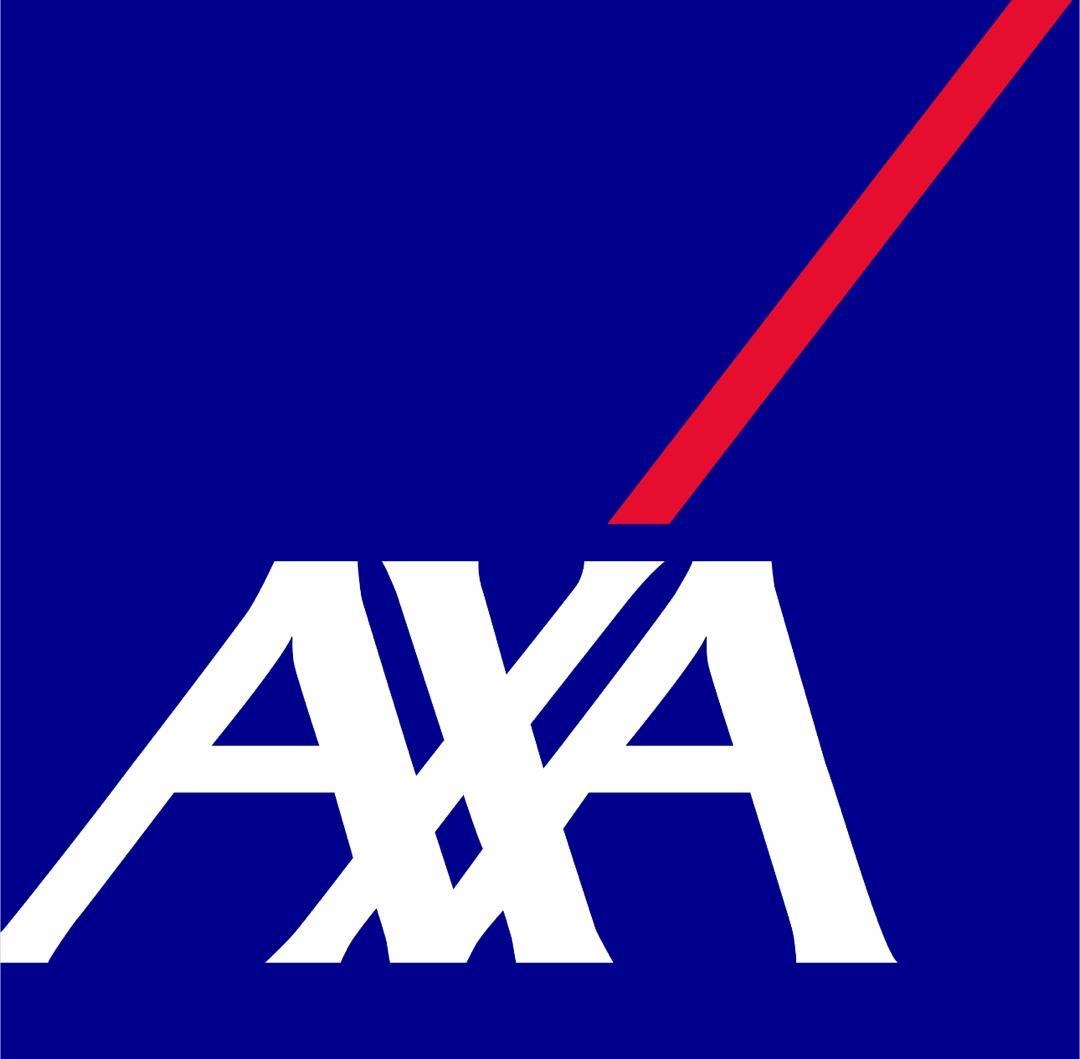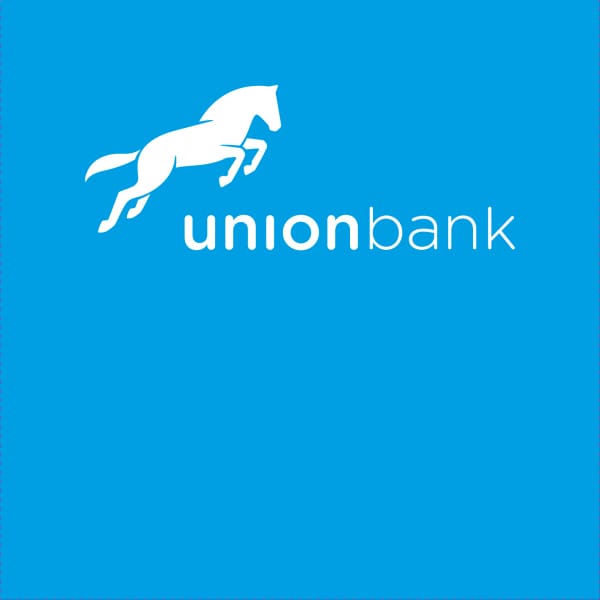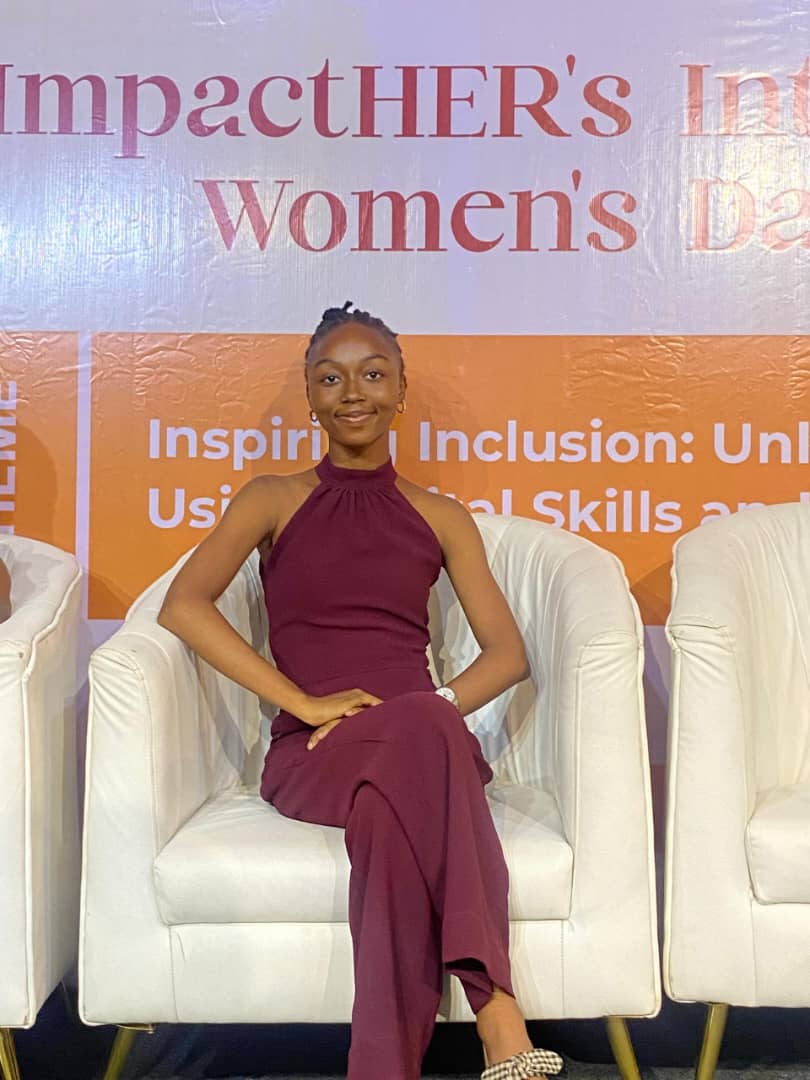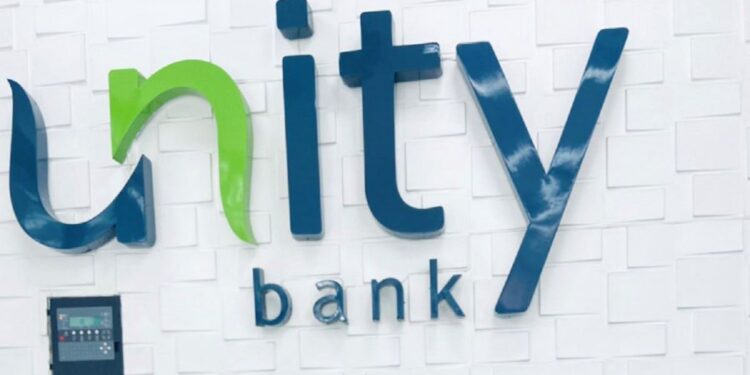Oando Profit-After-Tax Up 267% To N220 Billion In FY2024 Audited Results




A former Executive Director at Asset Management Corporation of Nigeria (AMCON), Mr Abbas Muhammed Jega, on Wednesday, June 4th, appeared at the Special Offences Court in Ikeja, Lagos, to testify in the ongoing case between the Economic and Financial Crimes Commission (EFCC) vs the ex-AMCON MD/CEO, Ahmed Kuru, Kamilu Omokide, a former receiver manager of Arik Air Ltd; Captain Roy Ilegbodu, the airline’s CEO; Union Bank Ltd; and Super Bravo Ltd.
Jega appeared as the third prosecution witness in the ongoing trial of the former AMCON boss, Mr. Ahmed Kuru, and four others, who are standing trial over alleged financial misappropriation amounting to N76 bn and $31.5m. The matter is presided over by Justice Mojisola Dada.
Providing the court with the details of what he could recollect about the Arik Air/Union Bank business relationship that went bad, Jega recalled that following the directive of the Central Bank regarding the dumping of non-performing loans to AMCON, Union Bank had informed AMCON then that the CBN informed them to collapse the guarantee of Arik into loan because of the huge amount involved in the Union Bank had exceeded the single obligor limit allowable by the apex bank.
Jega whose directorate in AMCON was in charge of the transaction (as Executive Director, Credit) disclosed that it was in a certain meeting held in London that we ‘first knew that what Union Bank sold to us was not a loan but a guarantee given to some foreign lenders, that in the event Arik died or burnout, Union Bank will pay the instalments.’
He said, “When we came back to Nigeria… we now invited the Union Bank to explain why AMCON should pay for the guarantee. At the end of the deliberations, AMCON agreed with Union Bank that the money paid should be returned to AMCON, so that if Arik does not pay any instalment, AMCON will make the payment on behalf of Arik. We (AMCON) invited Arik to resolve the issue with Union Bank.
However, AMCON sources have confirmed that the arrangement disclosed by Jega never existed. AMCON, being a recovery agency of the federal government of Nigeria, was never in a position to take over the repayment of an obligor’s exposure to foreign lenders, particularly when it never had any concrete arrangement with the obligor for the same.
Jega also disclosed that the Chairman of Arik, Sir Johnson Arumemi-Ikhide, was avoiding a discussion with us (AMCON), probably because he believed he shouldn’t be talking to AMCON, because he didn’t have an NPL with Union Bank. But he didn’t realise that some of the measures put in place by the system were that if AMCON takes over your loan, you cannot borrow in the banking industry. This forced him to come to the table. We signed some agreements on how to restructure the loans.
He said that after the restructuring agreement, AMCON gave Arik even more money to help them sort out their working capital problems. As a result, AMCON created additional loan facilities for Arik, but Arik still failed to meet their repayment obligation to AMCON.
He added that, “At the time AMCON took over Union Bank that the guarantee was performing, but since AMCON took over Arik, it stopped performing because the nature of the facility had changed, and Arik was not amenable to that change. It was unable to source its working capital from the money market. This complicated both the relationship between Arik/AMCON and the ability of Arik to honour its obligations.
“We tried in AMCON to save the situation through a debt equity swap, but the burden in AMCON’s books cannot be sustained by the airline. We also proffered a solution where AMCON becomes a shareholder in Arik, and the legacy owners will lose some control. We took steps to implement this option, but Arik refused.
“The second option was to have management control in Arik. To appoint MD and CFO, so that AMCON can have both oversight and financial control. Initially, Arik agreed. But they dragged in the implementation. This was the stage at which the matter was when I left AMCON.”
Upon cross-examination, Jega confirmed that Kamilu Omokide and Capt Ilegbodu never played any role in the purchase of the loan from Union Bank, nor did they play any role in the so-called London meeting between Union Bank, AMCON and Arik’s foreign lenders.
Jega also confirmed during cross-examination that Arik’s inability to repay was a result of over-trading by Arik, that is, stretching beyond its capacity and leading to their inability to service existing and due debts. He confirmed Arik’s indebtedness to AMCON as at the time of his exit in 2015 was over N100bn, and the same remained unpaid.
He further disclosed that the Arik loans acquired by AMCON were not limited to Union Bank but also included Keystone Bank. But the Zenith Bank loan was purchased after his exit, leading to the level of exposure Arik had to AMCON.
The matter was adjourned to 30th June, 1st and 2nd July 2025 for the continuation of cross-examination of Abass Jega.

AXA Mansard Investments Limited, a leading asset management company committed to shaping a financially empowered Nigeria, is proud to announce its sponsorship of the upcoming ‘The Mum Fund’ Event, an intimate and impactful gathering designed to help Nigerian mothers take charge of their financial futures with clarity and confidence.
‘The Mum Fund’ Event will take place on June 7, 2025, bringing together a vibrant community of contemporary mums interested in financial empowerment. Designed to foster community, spark mindset shifts, and provide practical financial tools, ‘The Mum Fund’ Event will feature candid conversations, expert guidance, and the support of like-minded women on a journey to build generational wealth.
“Financial education is not a luxury, it’s a necessity, especially for women who manage the heart of the home and influence generations,” said Adebola Surakat, Chief Marketing Officer at AXA Mansard. “Our decision to sponsor this event reflects our commitment to bridge the financial literacy gap and provide tools that empower everyday Nigerians to make sound financial decisions.”
Surakat furthered; “We are truly excited about the transformative potential of ‘The Mum Fund’ event. We are convinced that bringing mothers together in a safe, empowering space, environment can spark meaningful change, not just in how women manage money, but in how our society builds and sustain prosperity. The ripple effects of this kind of empowerment are far-reaching, and we’re proud to be a part of it.”
As a long-standing advocate of financial literacy, AXA Mansard Investments continues to invest in platforms and partnerships that help the Nigerian, particularly women, achieve financial well-being and long-term wealth creation.
The Mum Fund is organised by MoneyStart, an award-winning personal finance education and coaching platform, and Swaddle, an AI-powered digital companion built to support mothers by helping them stay organized, find local trusted recommendations and connect with other mothers.


To deliver simpler, smarter banking solutions, Union Bank of Nigeria has partnered with the Pan-African Payment and Settlement System (PAPSS) network, a Financial Market Infrastructure that provides hassle-free and convenient cross-border money transfers to some selected African countries.
This revolutionary payment solution for implementing the African Continental Free Trade Agreement (AfCFTA) is designed to transform how payments are made across Africa.
With PAPSS, customers can send money instantly to Ghana, Kenya, Rwanda, Liberia, Sierra Leone, Gambia, Malawi, Zambia, Zimbabwe, Djibouti, Nigeria and more African countries in the future.
Using PAPPS offers numerous benefits to customers, including, but not limited to, instant payments or transfers, cheaper foreign transaction costs, no need to source FX, enhanced security, and intra-African trade opportunities.
Commenting on this partnership that goes across borders, Peter Amadi, Head of Transaction Banking at Union Bank of Nigeria, said,
” At Union Bank of Nigeria, we are committed to driving innovation and excellence in banking. Our focus is on providing seamless and efficient banking through simpler, smarter solutions that meet the evolving needs of our customers. We believe in fostering strong relationships and delivering exceptional value to our customers, ensuring their success in today’s dynamic financial landscape.”
Mike Ogbalu III, CEO of PAPSS, commenting on this partnership, said
“I am very excited and proud to see Union Bank of Nigeria, a bank with over a century of banking legacy, joining the PAPSS network. This shows how PAPSS will be a game changer for the continent by enabling infrastructure to spur the growth of intra-African trade and commerce, with the active participation of regional economic communities, private sectors, and other stakeholders.”
Union Bank’s partnership with PAPSS marks a significant milestone in the Bank’s commitment to driving innovation and excellence in banking.
By providing seamless and efficient banking solutions through simpler, smarter means, the Bank aims to meet the evolving needs of its customers.
This collaboration enhances the Bank’s service offerings, fosters strong relationships, and delivers exceptional value to customers, ensuring their success in today’s dynamic financial landscape.
 Ben Sonia is a talented fashion and design entrepreneur, creative Director/Founder of ‘Shop Stab’, who discovered her gift while in the university. Aware that there were no clothes really fit for her size -4 body frame, she had no option than to learn to make clothes fit and proper for herself.
Ben Sonia is a talented fashion and design entrepreneur, creative Director/Founder of ‘Shop Stab’, who discovered her gift while in the university. Aware that there were no clothes really fit for her size -4 body frame, she had no option than to learn to make clothes fit and proper for herself.
A 25 -year- old medical laboratory scientist, from Babcock University, who was in dilemma whether to choose a career in fashion and design, a craft her grandfather conscientiously taught and encouraged her to pursue, or not. Bred in Lagos, Sonia’s creative journey began with fashion illustrations in 2013. While pursuing a bachelor’s degree. She nurtured her passion for fashion and sharpened her skills in pattern drafting.
Today, Sonia’s ‘Shop Stab’, features modern silhouettes, subtle prints, and unexpected details that add a touch of edification to each design and collections she makes. With styles that blend modern cuts and African inspiration, emphasizing detail, fit and proper, the Fashion outfit collections basically lies in personalization, quality craftsmanship, and storytelling. Each piece painstakingly created to mirror the wearer’s essence and heritage.
Despite her science background, Sonia’s creative spirit and exceptional dressmaking skills stood her out among her contemporaries, firing her cylinder to leave a legacy in the fashion / lifestyle industry.
In a meet and greet gathering of fashion enthusiasts and creative fellows recently in Lagos, Sonia spoke about Shop Stab and what the brand represents in the fashion industry. “Shop Stab represents elegance, culture, and individuality. We focus on creating timeless pieces that capture different personalities with a contemporary twist especially for women who want to look elegant, graceful, and unique.
“I have been designing since June 2018. Since then, it has been a mixed experience. There were good days and bad days, but, in all it’s been good totally, it’s been very fulfilling. For the bad days, I sleep over It and re- strategize. If it’s something I can change, I would go back and re- strategize, but if it’s something I can’t change, like the bad economy of the country. I mean, there is nothing I can do”
Speaking on what inspired her, Sonia said, she is motivated by African prints. African heritage and uniqueness spurs her to enmesh herself into nativity. To add up, people around inspired her to keep pushing despite all odds. “People inspire me. Most of my clients inspire me, different things inspire me. I can be sleeping now and then I receive an idea, next thing, I sketch it out and something beautiful, I’m a creative person”
Sourcing raw materials is a challenge every producer faces due to cost, logistics, among other factors. For her, she said “I source materials majorly from Itoku in Abeokuta, Adire fabrics. So sometimes I buy from the traders. Sometimes I make them. And they have been working perfectly for me. Because maybe I’m just lucky to find a good vendor. I have someone that I produce clothes for, I produce for her brand, and most of the Adire that she brings to me, some of them are turned some of them are not good at all. So I think I’m just lucky to have someone good”
Businesses thrive on patronage, on this note, the young Laboratory Scientist bemoan that local patronage has posed a threat to the craft. First, it majorly affects pricing. “When they bring these clothes from abroad, majorly from like China, they are quite cheap. So when I price my goods, people are like, Oh, I can easily get it for this price in the market, because it’s from China and all that stuff, and then it’s actually a problem, because people do not want to, but when they do, they try to compare your work. Although we know that our fabrics are better. But they don’t know. Most people don’t know this. People that think they know do not really know this. So they believe that you are overcharging them, or you’re over- pricing. But of late, people have been really showing interest in Nigeria brands, I think it’s because of celebrity designers, and all those outfits they have been making for people, people have been really showing interest because, the Africa Magic Viewers’ Choice Awards (AMVC) that just happened, Americans were rating Nigerian made clothes. It was very interesting. I mean, they didn’t know what they were doing, but, it made a lot of sense to me. Just made me happy”
Still on home made and foreign materials comparison, she maintained that she works majorly with cotton fabrics, calling on Nigerians to patronize locally- made as designers strive to input African heritage into every pieces produced. “I believe that if anyone should put on what he or she can relate to or maybe what speaks to you, it makes sense”
Speaking on Nigerians habitual act of patronizing foreign products against local designers, the fashion enthusiast said it affects them in different ways. “first is visibility. If you go to the market now, you hardly see Nigeria- made clothes. You see majorly foreign made clothes. I have not been to Aba, but I heard it is like a production house. It’s a big place. They make beautiful things there. My grandfather used to make a lot of suits and shoes there in Aba, he was a bank manager in Italy. So, he used to make all these clothes here in Aba, then, he would move the clothes (suits and shoes) made in Aba to Italy. I believe that if only we can look into it and make sure that our own things matter, like, if we can produce our own designs, make them really good and standard. I mean, people would want to buy from us. Why are we mimicking other designs that are not even good? Simply because we see them bringing a brand from China, instead of making things that are quality, things that would put us on a map. So, I believe that in the coming years we will see the vision”
Of government’s role in promoting indigenous fashion entrepreneurs, the fashion designer did not support the ban of importing clothing materials as some indigenous micro and small scale entrepreneurs have advised the government over the years, but says “It will not make sense, because it also helps us do things. I have customers in Australia that use our own indigenous clothes (Ankara). I think they just feel our uniqueness. I don’t know, maybe they just want to relate with our culture. Or maybe they feel it’s beautiful. I think they like a combination of both our clothes and the way we design. They love the fabrics, they are not related with us in any way, but maybe they just want to feel like us”
Responding to the declining interest in fashion and designing profession by young people of late, the young entrepreneur advised oldsters in the industry should to show the younger generation the good side of the work. She recalled that not so many people had wanted to dabble into fashion and designing, because the craft was smeared at as a low grade work for never- do- well.
‘Not until recent years that people started seeing the joy, because everybody believes that once you are a tailor, you are poor – financially. Yes, they believe that there is nothing else you can do. Because it’s a meagre work in their own eyes. That is how they looked at it. But now that people are seeing clothes that you can make clothes and actually price, and people would buy it. People would appreciate what you are making then. I mean, I believe we need to show younger ones the business side of it, they need to see the good side of it, the designing, the business side. You know, there are other things, like fashion tech, and ‘Fashion Illustration’ – which is a good one too. So there are different aspects. It’s just to show them the beautiful side and the good side to it. That is basically it.
And to motivate young people to join this profession, she explained that prospective fashion designers must have the passion because fashion designing is not something one does because of money, else one would cry. “You do it because you like it. And then you have to be smart enough to get money from it. You have to be informed. I still hold classes for younger breeds. I buy courses because I’m always trying to know more of recent trends in the industry, just to upgrade. You have to show them both sides, even if you have the passion for it, you have to know the business side of it. We need to let them know that it’s not all about money only, but it’s about creating a world of appealing scenes, acceptance, of elegance, esthetics and impact through crafting and designing with fabrics”
How busy are fashionista, she confirmed that there are two sides every coin. In December for instance, people want new clothes because it’s a peak season, October to December. But in January, people do not really buy clothes, but for her, there is always clothes to design and sew, because no matter what, people always make and put on clothes. “It’s something that you wear every day. Though I do not make bespoke dresses at that highest level, I make majorly ‘ready to wear’ majorly so I don’t take jobs just from anybody, because I want to make my own designs.
Has fashion design contributed to national economy? She felt proud of where the sector have come, saying “at this point I believe we are now being recognized and appreciated, our local contents have really boost our sales and visibility, income and then in providing jobs. Because if you have people desiring your design and the clothes you made, you would need more staff. You need more help. At a point I had three workers(marketing manager. I have someone that handles my social media page), when people are engaged, it helps the state of the economy and less people will be hungry. I teach Junior WAEC students sewing for their practical exams. I make ‘Made To Order Clothes’ so, I produce for brands that have fashion brands that cannot sew”
She urged the federal government to fix the epileptic economy as SMEs are struggling to survive – owing to incessant power outage and other high cost of production and operations. She noted that If the country is bedeviled and handicapped by hostile economic environment, it dampens the effort of African designers.
“My survival strategy is, I buy in bulk so that in the next few months, I will not be crying, or I will not have any need to run up and down because you cannot increase the costs of your clothes every week, your customers would just think you aren’t serious, and then they don’t even really have enough to be doing that, because their money is been affected by the harsh economy, that is it. Other surviving strategy is based on the situation as the case maybe.
In respect to sustainability in business, she categorically said sustainability is something she takes to heart- personally. Because the business of fashion involves a lot of waste (pieces of materials) from fabrics, she revealed that she uses the waste fabrics or pieces to make local bags and use the bags as a take -away pack. “I don’t waste any piece of material/ fabrics here. I reuse them. I produce bags I used to send clothes to clients. So I make them when one places order”
In reaching out to global scene, fair- complexioned Sonia said she have tried to incorporate contemporary touches and fittings into what she does, just so that it can appeal to the international audience as well. “I have also partnered with Stock Brands and retailers, international retailers, one in the UK and one in South Africa(Ananda Africa) just so that, I can have more reach for my clothes, because I know that even with my Instagram ads, I know that I might not have the visibility that I need. So I have tried to reach out. I have also tried to partner with other people, like a magazine abroad in the UK, Klat Magazine, I did a partnership with them, I did a shoot, and they used it for one of their creative, upcoming designers, just so that I can push myself out there. So I’m pushing working with all international bodies- magazines and distributors. Another one is Kouture Paradise. The feedback has been great. We have a shoot for Koutour Paradise this soon. We have a shoot because one of my pieces I just came out, I mean, it went viral, just so that, they can push but, it’s been good. Feedback has been good. I joined them this year. It’s been going well. I mean, so far so good”
Working and collaborating with the entertainment industry is another step higher, given the relevance of connections with bigger brands. She added that when she released a new collection in 8 of April, she made effort to reach out to personalities in the entertainment industry. “We have sent messages for collaborations to Zainab Balogun, Zara Byrne, Yobe Helen, Amy okoli, Powede Adewujo and some other influencers. Although we have not really seen much feedback, but we are still pushing.
“I think creative industry is something we should look into seriously, especially with the recent buzz. You know, Nigerian designers are on the map, like they are putting themselves on the map right now. So I think the government should really take advantage of it. They should really look into it and push it. We should try to get something from it. We should try to encourage others to boost our impact just to encourage us to grow.
“Sadly, I have not received any support from my representative in government. I’m in Nigeria. Most of everything I have here is self -funded. So government should do better by supporting youngsters like us who are in truth and sincerity striving to be responsible, accountable and productive economically in the society. Many young people are looking for real time support from the government and other well meaning Nigerians. The major challenge we have are the middle men through whom the young business creators ought to receive considerable support in real time from the government”

Unity Bank Plc has reaffirmed its commitment to advancing electronic payment adoption and financial inclusion by partnering with domestic card scheme provider, AfriGo, to boost card usage across its retail customer segments.
This pledge was made during a high-level strategic business engagement held at Unity Bank’s head office in Lagos on Friday, with AfriGo’s Executive Management team.
Speaking during the session, Unity Bank’s Managing Director/CEO, Mr. Ebenezer Kolawole, stated: “We are committed to making the AfriGo Card a primary delivery channel for Unity Bank. As a national domestic card scheme, it deserves to be promoted both internally and externally as a local solution with significant potential to redefine Nigeria’s card payment landscape.”
Mr. Kolawole also pledged the Bank’s continued support for the adoption of AfriGo cards across its network, while urging AfriGo to intensify awareness campaigns to drive greater market acceptability.
In his remarks, the Managing Director of AfriGo, Ebehijie Momoh, commended Unity Bank for the support it has given the scheme, stating that the Bank ranks among the top five adopters of the AfriGo card and highlighted its growing impact in expanding financial inclusion and improving access to electronic payments.
He noted that AfriGo has continued to innovate with technologies that support instant payments and offline capabilities, ensuring broader access to e-payment systems across underserved markets. He added that partnerships with solutions like Tap & Go have helped boost contactless payment adoption, improving convenience for cardholders who commute for work, business, or leisure.
Momoh expressed optimism about the potential of Unity Bank’s extensive retail network to drive deeper collaboration aimed at enhancing e-banking penetration nationwide.
This collaboration underscores Unity Bank’s enduring culture of digital innovation and its commitment to financial inclusion through homegrown technology. Over the years, the Bank has introduced several digital solutions that demonstrate this commitment.
Notably, Unity Bank pioneered USSD banking, *7799#, in local languages, an initiative aimed at deepening access among underserved rural and semi-urban populations. It also launched Unifi, a youth-focused digital banking platform designed to meet the lifestyle and financial needs of the younger demographic. Most recently, the Bank unveiled GenFi, a gamified mobile banking solution tailored for children and teenagers to cultivate smart money habits from an early age.
 In a move to get fans across Nigeria, the UK, the USA, and beyond buzzing with nostalgia, Afrobeats legends Twin-X have officially launched a brand-new platform: www.twin-x.org.
In a move to get fans across Nigeria, the UK, the USA, and beyond buzzing with nostalgia, Afrobeats legends Twin-X have officially launched a brand-new platform: www.twin-x.org.
The identical twin brothers Taiwo and Keni Akintoye, who captivated a generation with their timeless 2001 hit “Mother Mi”, are stepping into the digital spotlight for the first time in over a decade. Their iconic ballad, known for its soul-stirring hook “Olu Orun ma pa mother mi lekun”, dominated radio stations, crossed cultural boundaries, and became an anthem across Nigerian campuses in the early 2000s.
Celebrating 24 Years of “Mother Mi” — A Tribute to African Motherhood
The launch of Twin-X’s official website marks a significant milestone: exactly 24 years since the release of Mother Mi on May 27, 2001. The duo reminisces on the song’s legacy through a moving statement published on the site:
“That song changed everything. The response was unreal. The video became an instant classic, packed with legends like Uche Jombo, Steph Nora Okere, Jennifer Eliogu, Kenny Ogungbe, ID Ogungbe, Kwame, and Tony Tetuila — all coming together to celebrate motherhood. It wasn’t just a song; it was a tribute.”
A New Digital Hub for Afrobeats Fans and Music Historians
The newly launched platform twin-x.org serves as a central hub for authentic information, rare archives, and untold stories from the Twin-X journey. It includes never-before-seen photos and content, truthful accounts of their musical journey, clarifications on past rumors and misrepresented facts, and behind-the-scenes insights into their hiatus.
This move comes just months after the March 2025 release of their complete discography on all major digital streaming platforms, including Spotify, Apple Music, Amazon Music, and more. Fans can now stream hit songs like Mother Mi, Plenty Money, Miliki, Oya, and others — many of which defined the early Afrobeats movement.
Beyond Music: Legacy, Entrepreneurship & Cultural Impact
In a joint statement, the brothers shared the broader vision behind their return:
“Our decision to step out now is about more than just music. It’s about everything we’ve represented over the years — including our growth as professionals and entrepreneurs in media, tech, and academia. This website bridges our musical legacy with our real-world accomplishments across different sectors in Nigeria and internationally.”
They also hinted at the possibility of new music, signaling that while their priorities may have evolved, their passion for sound remains very much alive.
“We hope that we can balance things this time around. Perhaps, there might still be some music to look out for.”
Twin-X: Honoring the Past, Shaping the Future of Afrobeats
As Afrobeats continues to gain global recognition, the return of Twin-X is a major moment in Nigerian music history. Their decision to digitally preserve their legacy not only honors their contribution to Afrobeats culture but also introduces their impactful story to a new generation of music lovers around the world.
While promising the launch of a new YouTube channel next, you can stay connected with Twin-X and explore exclusive stories, music, videos, and updates at www.twin-x.org and on Instagram, Facebook and X.
 World Health Organization (WHO) has published its first-ever position paper on immunization products to protect infants against respiratory syncytial virus (RSV) – the leading cause of acute lower respiratory infections in children globally.
World Health Organization (WHO) has published its first-ever position paper on immunization products to protect infants against respiratory syncytial virus (RSV) – the leading cause of acute lower respiratory infections in children globally.
Every year, RSV causes about 100 000 deaths and over 3.6 million hospitalizations in children under the age of 5 years worldwide. About half of these deaths occur in infants younger than 6 months of age. The vast majority (97%) of RSV deaths in infants occur in low- and middle-income countries where there is limited access to supportive medical care, such as oxygen or hydration.
Published in the Weekly Epidemiological Record (WER), the position paper outlines WHO recommendations for two immunization products: a maternal vaccine that can be given to pregnant women in their third trimester to protect their infant and a long-acting monoclonal antibody that can be administered to infants from birth, just before or during the RSV season.
“RSV is an incredibly infectious virus that infects people of all ages, but is especially harmful to infants, particularly those born premature, when they are most vulnerable to severe disease,” says Dr Kate O’Brien, Director of Immunization, Vaccines, and Biologicals at WHO. “The WHO-recommended RSV immunization products can transform the fight against severe RSV disease, dramatically reduce hospitalizations, and deaths, ultimately saving many infant lives globally.”
RSV usually causes mild symptoms similar to the common cold, including runny nose, cough and fever. However, it can lead to serious complications – including pneumonia and bronchiolitis – in infants, young children, older adults and those with compromised immune systems or underlying health conditions.
Two immunization products to protect against RSV
In response to the global burden of severe RSV disease among infants, WHO recommends that all countries introduce either the maternal vaccine, RSVpreF, or the monoclonal antibody, nirsevimab depending on the feasibility of implementation within each country’s existing health system, cost-effectiveness and anticipated coverage. Both products were recommended by the Strategic Advisory Group of Experts on Immunization (SAGE) for global implementation in September 2024. In addition, the maternal vaccine received WHO prequalification in March 2025, allowing it to be purchased by UN agencies.
WHO recommends that the maternal vaccine be given to pregnant women during the third trimester of pregnancy, from week 28 onwards, to optimize for the adequate transfer of antibodies to their baby. The vaccine may be given during routine antenatal care, including at one of the 5 WHO-recommended antenatal care visits in the third trimester or any additional medical consultations.
The second WHO-recommended immunization product, nirsevimab, is given as a single injection of monoclonal antibodies that starts protecting babies against RSV within a week of administration and lasts for at least 5 months, which can cover the entire RSV season in countries with RSV seasonality.
WHO recommends that infants receive a single dose of nirsevimab right after birth or before being discharged from a birthing facility. If not administered at birth, the monoclonal antibody can be given during the baby’s first health visit. If a country decides to administer the product only during the RSV season rather than year-round, a single dose can also be given to older infants just before entering their first RSV season.
The greatest impact on severe RSV disease will be achieved by administering the monoclonal antibody to infants under 6 months of age. However, there is still a potential benefit among infants up to 12 months of age.
WHO regularly issues updated position papers on vaccines, combinations of vaccines and other immunization products against diseases that have major public health impact. These papers focus primarily on the use of vaccines in large-scale vaccination programmes. The new position paper aims to inform national public health policymakers and immunization programme managers on the use of RSV immunization products in their national programmes, as well as national and international funding agencies.
Source: WHO
